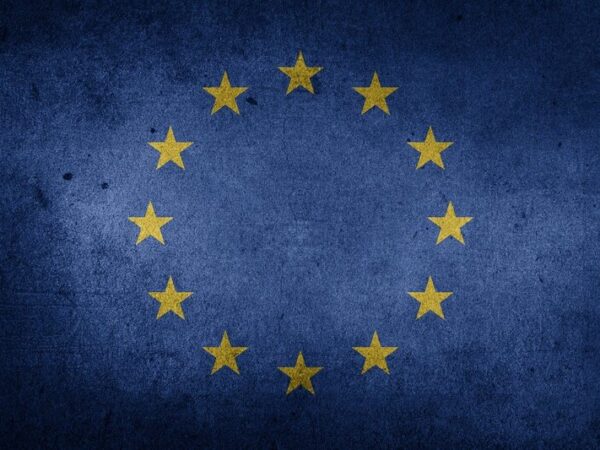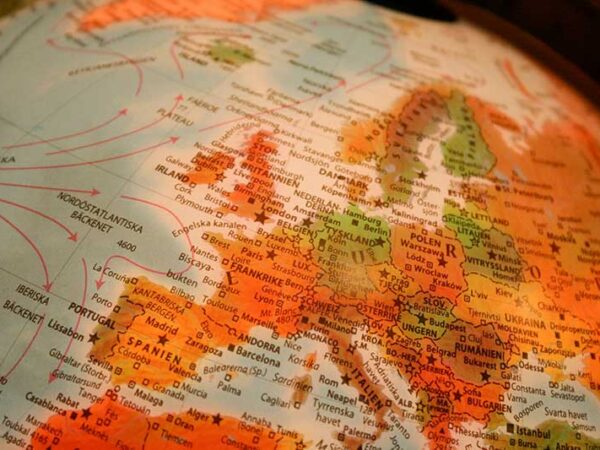Why Are Some European Countries Not EU Members?
While it may appear that almost every European country is a part of the European Union, this is far from the case. As things stand in 2023, there are 27 EU member states, while there are 23 European countries that have never joined, may join in the future, have left or are currently applying for membership.
Although the European Union’s stated purpose is to streamline commercial activity across Europe and boost the economy of its member states, some countries did not wish to cede power to a central controlling body and did not pursue the option of joining. However, as EU member states have seen steady growth in their national economies over the decades, it became apparent that membership brought considerable benefits.
Economic benefits, easier access to larger markets, grants available for improving national infrastructure and improved standards of living are some of the positive aspects of EU membership, and many countries are now reconsidering their original opposition to joining the European Union.
European Union Outsiders
The European Union largely forms a continuous block of land that stretches across Europe from France to Russia, going west to east and from the Scandinavian countries to Italy, Cyprus and Malta on a north-to-south axis.
There are a couple of notable missing pieces, as Switzerland, at the heart of the EU block, has never been a member, and the recent exit of the United Kingdom leaves a gap between the Republic of Ireland and the European mainland. Most of the European countries that are not currently members of the European Union are located on the fringes of the continent between mainland Europe and Russia to the east and Africa to the south.
The full list of the 23 non-EU countries is as follows:
- Andorra
- Albania
- Armenia
- Azerbaijan
- Bosnia and Herzegovina
- Belarus
- Georgia
- Iceland
- Kosovo
- Liechtenstein
- Montenegro
- Monaco
- Moldova
- Norway
- North Macedonia
- Russia
- Serbia
- San Marino
- Switzerland
- Turkey
- Ukraine
- The United Kingdom
- Vatican City
Some of these countries are currently in the process of becoming EU member states, while others are expected to apply for membership in the not-too-distant future. Others have never expressed a desire to join the EU, while the United Kingdom was a long-standing member until its recent withdrawal.
EU Membership Pending
Five countries are currently awaiting the outcome of their application to join the European Union:
Albania
A member of NATO since 2009, talks began in 2016 about the possibility of Albania joining the EU. The European Council approved the country’s initial application, but entry is subject to strict conditions.
These include:
- Significant reforms of the Albanian justice system
- Introducing a new, improved electoral law
- Bringing corrupt judges to trial
- Respecting the human rights of the minority Greek population in Albania
These conditions of entry were restated in 2019 but were still not acted upon, and objections to Albanian admission were lodged by France and Holland, among others. A final decision has yet to be made.
Montenegro
Montenegro applied for EU membership in 2008 and was given candidate status two years later in 2020. Having received EU funding of around €507 million (£446 million) in development funding up to 2020, Montenegro is looked upon favourably by most EU member states, with many expecting the country to achieve member status as early as 2025. However, some difficulties remain over the country’s ongoing judicial, ecological and crime-related problems.
North Macedonia
The admission of North Macedonia to the European Union has been ongoing for almost twenty years. The country applied for membership in 2004 and was given official recognition as a candidate a year later in 2005. The country’s admission was first vetoed by Greece in 2008 who objected to the use of “Macedonia” in the country’s name and later by Bulgaria in 2020 who questioned the progress made in implementing the terms of the 2017 Friendship Treaty between the two countries.
Despite the amount of time that has passed since North Macedonia first lodged its membership application, an end is not yet in sight, and the country can do little but wait a little longer for EU approval to join.
Serbia
On the books since granted candidate status for accession, Serbia has been waiting to join the EU since first lodging an application in 2009.
Until 2020, Serbia has received more than €2.9 billion (£2.5 billion) in developmental aid from the EU to rebuild the country following the devastating Balkan wars of the early 1990s. Final negotiations are ongoing, with a favourable result expected in 2024, with Serbia joining the European Union sometime in 2025.
Turkey
Negotiations over Turkey’s admission to the EU have been slow and difficult. The country lodged its membership application in 2005, whereupon the EU Commission laid out a list of 35 preconditions for admission. Eleven years later, in 2016, Turkey had only satisfied one of the required conditions and commenced work on sixteen others while the remainder had not even begun to be implemented.
The negotiations all but ground to a halt in 2016 when the EU accused Turkey of human rights violations and criticised the government for shortcomings in the country’s national laws.
Finally, in 2019, an EU committee voted to suspend membership talks, prompting sharp criticism of the EU from the Turkish government. The situation remains in a stalemate with no sign of either Turkey or the EU backing down.
European Union Potential Candidates
As well as the five countries that are currently under revision as EU members two more potential candidates are highly likely to qualify for membership in the near future:
Bosnia and Herzegovina
Bosnia and Herzegovina was identified as a possible future EU member in 2003, but the country only lodged an official application in 2016. The thirteen-year delay was due to the EU Commission placing several preconditions on Bosnia and Herzegovina before membership could be considered.
Over a thirteen-year span, Bosnia and Herzegovina has revamped, updated and implemented a number of governmental policies to fall into line with EU standards. These include agreements regarding:
- Visa Facilitation and Readmission
- Trade (and trade-related) matters
- Stabilisation and Association
The Bosnia and Herzegovina application was re-examined in 2019, with the EU identifying fourteen conditions that still needed improvement. These included reforms in democracy and public administration as well as changes to some of the country’s existing laws.
Once the necessary reforms and changes are completed, it should only be a matter of a few years before Bosnia and Herzegovina joins the European Union as a full member.
Kosovo
Having gained independence in 2008, Kosovo almost immediately began an overhaul of its legal, social and economic policies to bring them more in line with the required EU standards. Joining the EU was on the agenda since day one, and after many years of preparation, Kosovo finally lodged an official membership application late in 2022.
The European Union Commission is looking favourably of applications from the Balkan States, and it is expected that Kosovo’s application will be fast-tracked and the country may achieve full membership status as early as 2025.
Movement of People in the EU
The founding tenets of the earliest form of the European Union consisted of the “four freedoms” that a united Europe would promote, develop and sustain.
The four freedoms are the simplifying and easing of the:
- Movement of goods
- Movement of money
- Movement of services
- Movement of people
The movement of goods, money and services largely relate to business but it is the ease of movement for people which has the most profound effect on ordinary people.
Citizens of any EU member country need only a valid passport to move from one member state to another. From the shortest of holiday visits to extended stays for study or work purposes, EU citizens do not require any form of European or Schengen Visa.
Non-EU nationals, however, do not enjoy such easy access to, or movement within, the European Union borders. A Schengen Visa will most likely be a minimum requirement for holders of non-EU passports, and it will also soon become mandatory to possess an ETIAS (European Travel Information and Authorisation System) in order to enter any EU or Schengen member state.
ETIAS, an electronic form of visa, is currently in the process of being rolled out and is expected to become a mandatory requirement for all non-EU citizens by 2024. Once fully operational, non-EU nationals will find visiting any European country a more complicated process than at present, as the ETIAS must be applied for and approved before travel even commences.
EU membership has distinct advantages for ordinary citizens wishing to enjoy as much freedom to travel as possible. At the same time, another layer of bureaucracy is about to be added for those outside the European Union.




